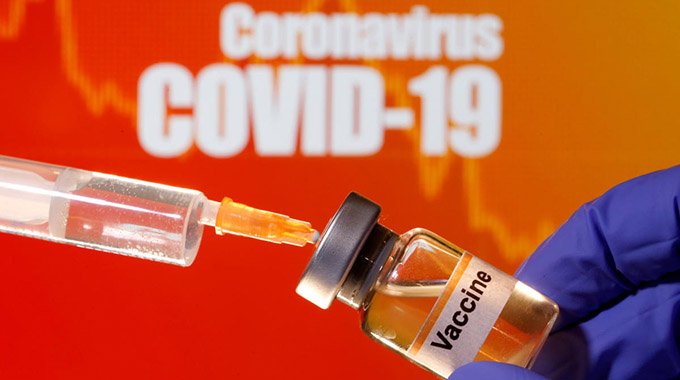Expert Warns Cold Chain Infrastructure Overhaul Needed For Covid-19 Vaccine Rollout – Andrew Wight

Lenias Hwenda, an immunologist and international health expert from Zimbabwe has warned the cold-chain logistics of distributing an RNA vaccine for Covid-19 are going to be challenging for most lower-middle-income countries and rural areas.
Hwenda, who is Founder and CEO of Medicines for Africa and once worked in the lab of Covid-19 vaccine pioneer Sarah Gilbert, says although many African nations have done a better job than many western nations in containing the spread of Covid-19, underinvestment in health and logistics infrastructure there may undermine efforts to effectively distributing a potential vaccine.
In early November, Pfizer and BioNTech announced early data from their promising mRNA vaccine candidate called BNT162b2, claiming a 90% effectiveness at Covid-19, without major safety concerns. However, unlike vaccines for diphtheria or tetanus, which can be stored at fridge-like temperatures (4-8°C), these new vaccines mostly need to be stored under 70°C.
Hwenda, who is now based in Geneva, says lower middle income countries and rural communities have limited cold chain infrastructure needed for transport and storage of these kinds of very low temperature vaccines.
“Infectious disease outbreaks are a reality that we can expect in the future and mRNA vaccine platforms will likely be increasingly used to achieve rapid vaccine development against novel infectious pathogens,” she said, adding that that means challenges for hot and remote areas.
“Health authorities should seek a wide array of partners in international organizations, NGOs and private sector to facilitate interim solutions needed to expand logistics solutions and of course in the long term they should think about investing in developing that infrastructure, ” she said,
In a recent opinion piece, Hwenda said Africa has a vast and neglected infrastructure gap of some $50-90 billion.
“Developing the right infrastructure is necessary for the future resilience of health systems in these countries,” she said.
Hwenda says focusing on supply chains for vital medicines was the impetus for her founding Medicines for Africa, a social enterprise with a mission to improve access to quality medicines at prices affordable to buyers and patients, focuses on providing cancer treatments to patients in East and Southern Africa.
“The way medical supply chains are organised at the moment is not working for most African patients,” she said, “There are many inefficiencies in medical supply chains and there is a lot of preventable suffering because supply chain systems are not delivering the good results that they are capable of producing.”
Hwenda was born in Guruve, in the northern province of Zimbabwe in Mashonaland Central. She says that her long journey in STEM took her to do her A levels in England and university in Scotland. Eventually she became an immunologist in the UK, a diplomat and Health Policy Advisor with Zimbabwe’s Mission to the UN in Geneva and now CEO of Medicines for Africa.
Hwenda’s passion stems in part from two personal tragedies.
“My favourite uncle, Ephraim who was a chief, died from HIV/AIDS and seeing this larger than life big man reduced by his illness broke my heart,” she said.
“There were no treatments in the entire country or in any African country in fact, so nothing could be done for him, but it was then that I made the decision that my professional career I would work on bringing treatments to those in need,” she said.
Her father also passed away from testicular cancer during her second year at University.
Hwenda is far from the only African woman in STEM to make an impact on the health and wellbeing of the continent. Rwandan mechanical engineer Christelle Kwizera, who grew up in the aftermath of the country’s genocide is now using a network of boreholes and purified water microgrids to give over 100,000 people access to water.- forbes.com.sites.andrewwight.








Comments